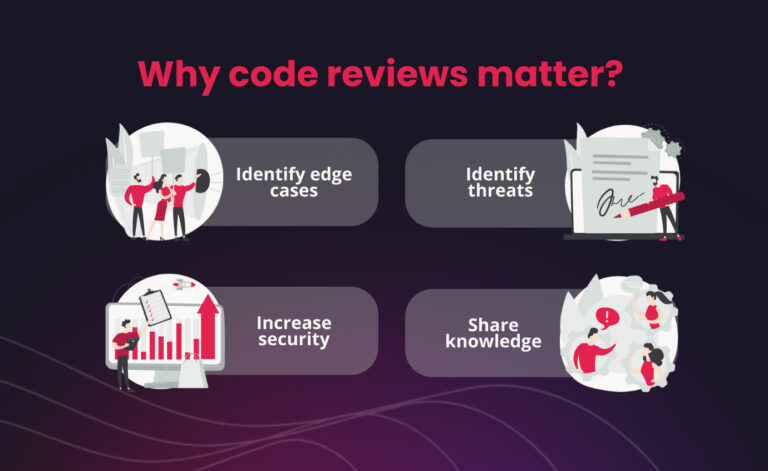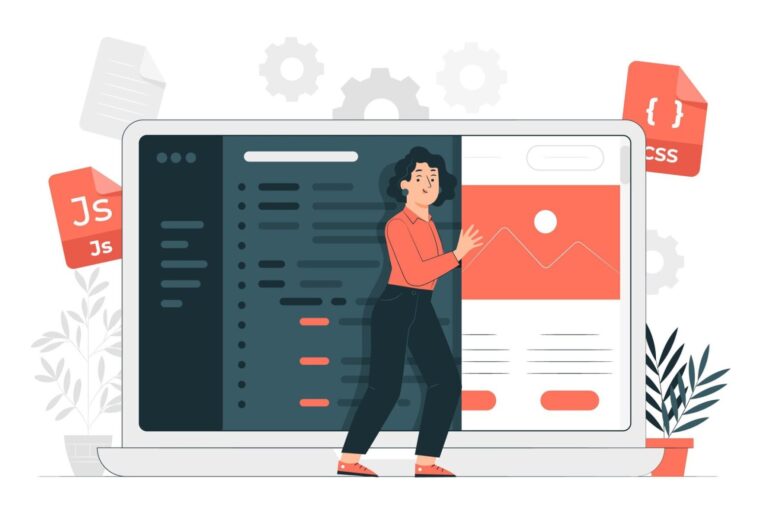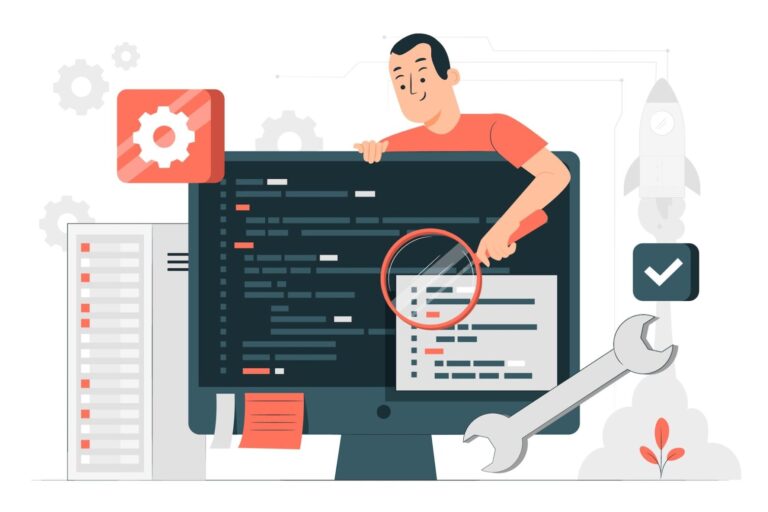Table of Contents
Are you keeping up with the continuous changes in the job market, trends and emerging technologies in software development? Then, you should know that software engineering is no longer just about writing functional code; it’s all about designing intelligent, secure, and scalable solutions.
Recently, Oleksandr Budnik, a Chief Technology Officer at Altamira, shared his vision and insights on software engineering excellence in 2024.
Oleksandr explores the key aspects of the software engineering skill set in 2024, diving into both the hard technical skills and the equally important soft skills that define engineers’ efficiency. Let’s see in more detail.
How to succeed as software engineer: key hard skills you need
From in-depth knowledge of programming languages to understanding algorithms, data structures, and software architecture, you have to master these aspects to build efficient and scalable solutions.
Artificial Intelligence and Machine Learning
Today, software engineers must understand the principles of AI and ML, as well as expertly integrate these technologies into their projects.

Key areas of focus
Fundamental understanding
- Explore core concepts of AI and ML, including supervised and unsupervised learning, deep learning, and neural networks.
- Understand the differences between various ML algorithms and when to apply them.
Data handling and preprocessing
- Develop skills in data cleaning, normalisation, and feature engineering.
- Master techniques for managing large datasets.
AI/ML frameworks and libraries
- Gain proficiency in popular frameworks like TensorFlow, PyTorch, or scikit-learn.
- Stay updated with emerging tools and libraries in the AI/ML ecosystem.
AI-powered development tools
Learn to use AI-powered coding assistants and productivity tool, such as:
- GitHub Copilot is AI pair programmer that suggests code completions and entire functions.
- Codium is AI code completion tool that offers suggestions based on your coding patterns.
- Tabnine is also a code completion assistant that supports multiple programming languages.
- IBM AI for Code is a suite of AI-powered tools for code completion, bug detection, and more.
- DeepCode is an AI-powered code review tool that helps identify bugs and security vulnerabilities.
Learn more about Industry 4 and how to capture its maximum value
AI-driven software development is shaking up the way software engineers approach coding, offering tools that improve productivity by automating and optimising tasks. These AI-assisted tools greatly impact all stages of the software development lifecycle, from requirements analysis to testing.
In addition, software engineers can adapt general AI and ML principles to address unique, domain-specific challenges by gaining a deep understanding of AI applications in areas like computer vision, natural language processing, and robotics.

Code quality
We have to admit that software systems become too complex and integral to our daily lives, thus the importance of code quality cannot be overstated. High-quality code is a process that requires multiple checks and balances.

Start by implementing consistent coding standards and using tools like linters and formatters to enforce them. Regular peer code reviews, supported by automated review tools, help catch issues early and facilitate knowledge sharing.
Also, embrace a test-first development approach, writing tests before features to ensure they meet specifications, with full coverage across the unit, integration, and end-to-end tests. Don’t neglect regular code refactoring to improve structure and readability, following the “Boy Scout Rule” of leaving the code better than you found it.
Finally, use static analysis tools integrated into your CI/CD pipeline to identify potential issues before runtime. Keep your documentation clear and concise, complemented by self-documenting code practices. Strive for simplicity in code design, applying SOLID principles and design patterns for maintainability.
Pragmatic separation of concerns
Separation of concerns is the practice of dividing a computer program into separate sections, each solving a separate concern. This principle is a cornerstone of good software design which helps to strike a balance between clean, modular code and practical, maintainable solutions.

What are the benefits of pragmatic separation of concerns a software engineer can identify?
Improved maintainability
Well-separated concerns make it easier to understand, modify, and maintain code.
Streamlined reusability
Properly isolated components can be more easily reused in different contexts.
Better testability
Separated concerns typically lead to more modular code that’s easier to test in isolation.
Easier collaboration
Clear separation allows team members to work on different parts of the system with minimal conflicts.
Scalability
Well-organised code is easier to scale and extend as the project grows.
If you seek to separate concerns in your code, start by identifying natural boundaries within your system, such as business domains, technical layers, or specific functional areas. Use design patterns like MVC or Clean Architecture when they genuinely simplify your code, but don’t force them where they don’t fit.
Modularise by breaking down large functions or classes into smaller, cohesive units with loose coupling between them. Dependency Injection can help manage dependencies and improve modularity, making testing and configuration easier.
Follow the Single Responsibility Principle, ensuring each module or class has a clear, primary function. However, avoid over-fragmenting your code into too many small classes. Use interfaces and abstractions where they make sense, but don’t over-engineer in the name of future-proofing.
Besides, refactor your code incrementally, making small improvements as you work rather than large, disruptive changes. Always consider the cost-benefit ratio of any separation—sometimes, a simpler solution is the better option.

How to avoid over-abstraction?
- Avoid building abstractions for imagined future use cases.
- Implement abstractions when you have the evidence that supports your assertion.
Choose readability over cleverness
- Prioritise code that’s easy to understand and maintain.
- Avoid super complex abstractions that obscure the code’s intent.
Seek for gradual optimisation
Don’t separate concerns purely for performance reasons unless you’ve identified a real bottleneck.
Maintain context
Ensure that separating concerns doesn’t lead to losing important context or making the overall system harder to understand.
Regularly review and refactor
Assess your abstractions and separations.
By applying separation of concerns pragmatically, software engineers can create codebases that are both clean and practical. As a result, you will improve the system’s maintainability without falling into the trap of useless complexity.
Infrastructure as Code (IaC)
Infrastructure as Code (IaC) has become an inevitable aspect of modern cloud infrastructure and resource management.
Key concepts and skills for modern development include setting up consistent local environments using containerisation tools like Docker and managing portable environments with tools like Vagrant. On top of that, you should also be proficient with package managers and dependency management tools relevant to your tech stack.
You also should understand server infrastructure, including the different types of servers (web, application, database) and the basics of cloud services such as AWS, Azure, or GCP. Don’t forget to learn how to enable load balancing, auto-scaling, and high availability is also important.
Besides, your expertise in IaC tools like Terraform for multi-cloud provisioning, CloudFormation for AWS, or Ansible for configuration management is an important requirement, along with knowledge of YAML and JSON for configuration files.
In the deployment process, understanding CI/CD pipelines and tools like Jenkins or GitLab CI is key, along with knowledge of deployment strategies like blue-green or canary releases. Finally, you should be able to set up monitoring and alerting systems and implement centralised logging for efficient troubleshooting.
From setting up consistent local environments to managing complex cloud infrastructures, IaC skills are inevitable for proper development and deployment processes. By mastering these concepts, software engineers at all levels can contribute to their projects and teams, ensuring smoother operations and more reliable software delivery.

Cybersecurity coding practices
We can’t treat security as an afterthought anymore or leave it solely to security teams. Every software engineer, regardless of their level or specific role, must incorporate security best practices into their coding routine to ensure the overall success and safety of their projects.
Key cybersecurity coding practices cover several critical areas
- Start with input validation and sanitisation to prevent SQL injection and XSS attacks by validating inputs on both the client and server sides and using parameterized queries.
- For authentication and authorisation, enforce strong password policies, multi-factor authentication, and use secure protocols like OAuth 2.0.
- When handling sensitive data, ensure it’s encrypted both at rest and in transit, using strong encryption algorithms like AES or RSA, and follow best practices for key management.
- Secure all communication by enforcing HTTPS and correctly configuring SSL/TLS, especially for APIs. Manage dependencies by keeping them updated and using tools like Snyk to scan for vulnerabilities.
- Avoid leaking information and ensure sensitive data isn’t logged. Follow OWASP guidelines and use language-specific security practices for secure coding.
- Finally, integrate security testing into your CI/CD pipeline and regularly conduct penetration tests and vulnerability assessments to identify and address potential threats.
Cybersecurity is not just a checkbox to tick off at the end of a project; it’s an ongoing process that should be integrated into every aspect of software development.
Database and SQL knowledge
While ORMs have simplified database interactions in many applications, an in-depth understanding of databases and SQL remains a top priority for software engineers. By mastering this skill, you can optimise database performance, write efficient queries, and make informed decisions about data storage and retrieval.
Let's explore what areas software engineers should focus on
Key areas of focus in database management include a solid understanding of SQL fundamentals like CRUD operations, JOINs, and aggregations with GROUP BY clauses, along with subqueries and CTEs.
For query optimisation, read execution plans, use EXPLAIN for performance analysis, and optimise complex queries to avoid bottlenecks. Transaction management requires a strong understanding of ACID properties, proper isolation levels, and concurrency.
Moreover, it’s reasonable to deepen your knowledge around various database engines, such as InnoDB or MVCC, and how data is physically stored and retrieved. For scaling and performance, implementing sharding, partitioning, and caching strategies, as well as using read replicas, turn to be key techniques.
Discover the cases for using NoSQL databases, along with awareness of NewSQL databases that combine SQL and NoSQL features.

By continuously improving your database skills, you will create more efficient, scalable, and reliable applications, adding extra value to each and every projects.
What soft skills do you have to practice for software engineering?

Higher-order thinking
Your critical thinking ability has become a valuable soft skill for software engineers. You should be able to look beyond immediate coding tasks to understand the broader context of a project, including its impact on the overall system architecture, business goals, and end-users.
Higher-order thinking enables software engineers to make more informed decisions, contribute strategically to projects, and align their work with larger organisational objectives.
First of all, you need a system-wide perspective to understand how components interact and how changes impact the entire architecture while anticipating the ripple effects of implementations.
So, align your technical decisions with the core business model and always evaluate the ROI of your solutions.
Communication and collaboration
As software development becomes increasingly team-oriented, your ability to communicate efficiently, collaborate smoothly, and proactively seek feedback has become more important than ever.
You should learn how to clearly express your ideas both verbally and in writing, actively listen to understand different perspectives, and adapt your style for diverse audiences.
A collaborative mindset is anchored in openness and flexibility to promote sharing knowledge, being open to different approaches, and working well in cross-functional teams while contributing to a positive team culture.
Feedback is a key component as well—regularly seek and provide constructive feedback and use it to level up your performance. Cultivating a culture of continuous improvement through feedback helps drive overall team success.

To enhance feedback loops, schedule regular one-on-one meetings with your team and managers, actively engage in code reviews and set personal development goals based on the feedback you receive. Practice giving constructive feedback that is both respectful and actionable.
Improve cross-functional collaboration by volunteering for inter-departmental projects, attending meetings or workshops from other teams to gain broader insights, and serving as a liaison between technical and non-technical members.
Today, technical skills alone are not enough to make a software engineer truly valuable to their team. The ability to communicate effectively, collaborate, and engage in constructive feedback loops is what sets apart great software engineers from good ones. By continuously improving these soft skills, engineers can elevate the entire team’s productivity.
Continuous learning
Continuous learning is the process of ongoing expansion your knowledge and skill sets. As technologies evolve, new frameworks emerge, and best practices shift, the ability to continuously acquire and apply new knowledge has become one of the most critical skills for software engineers in 2024.

Start with self-directed learning
Identify areas for improvement and set personal goals. Use diverse methods such as online courses and practical applications to balance theory with practice.
Learn to manage your time
Set aside regular learning slots and ensure they complement your work responsibilities. Focus on core principles and stay updated with industry trends and emerging technologies.
Engage with your peers and mentors to share knowledge and seek guidance
Reflect regularly on what you’ve learned and adjust your strategies based on effectiveness.
Create a learning roadmap
Assess your current skills, setting SMART goals, and prioritise them based on career aspirations. Use online resources like MOOCs and coding platforms, as well as participate in coding communities and project-based learning.
Attend conferences and workshops
Get hands-on experience and stay updated with technical books and case studies. Teaching others through blogging, workshops, or mentoring can reinforce your knowledge.
Participate in coding competitions and set personal learning goals
Use work opportunities to apply new skills and practice deliberate learning by deeply understanding and applying core concepts to real-world problems. Seek feedback from peers and mentors to continually refine your skills.
Continuous learning is the cornerstone of a successful and fulfilling career in software engineering. In 2024, with the pace of technological change faster than ever, the ability to learn, unlearn, and relearn is what separates thriving software engineers from those who struggle to keep up.
Conclusion
It goes without saying that today, true excellence in the software engineer field requires a multifaceted approach. The journey to becoming a top-rated software engineer extends far beyond mastering the latest programming languages or frameworks. It requires a harmonious blend of cutting-edge technical skills and well-developed soft skills, creating a balance that helps professionals and entire organisations progress.
On the technical front, proficiency in artificial intelligence and machine learning, infrastructure such as code, and cybersecurity has become non-negotiable. These hard skills form the foundation upon which advanced solutions are built.
However, it’s the ability to write high-quality, maintainable code, design scalable systems, and understand the twists of database operations that indeed sets apart exceptional software engineers. The modern software engineer must be a versatile technologist, capable of adapting to new tools and methodologies while maintaining a deep understanding of fundamental principles.
Equally crucial are the soft skills that enable engineers to translate their technical expertise into real-world impact. Your ability to think at a high level, seeing beyond immediate tasks to understand broader system implications and business objectives, is invaluable.
Effective communication and collaboration, coupled with a willingness to seek and provide constructive feedback, create an environment conducive to growth.
In conclusion, software engineering excellence in 2024 is about striking a balance between depth and breadth of knowledge, technical acumen and interpersonal skills, and individual brilliance and team collaboration. The most successful software engineers will be those who write exceptional code, communicate effectively, think critically, and adapt proactively to change.
How can we help you?
At Altamira, we assemble dedicated teams from scratch that are tailored to your specific project requirements to strengthen your technical capabilities.

We offer
- Pool of 100+ skilled specialists
- Quick and easy hiring process
- Accumulated experience of 10+ years in software outsourcing
- Strict technical selection criteria for engineers
- Transparent pricing model
Bring your idea to life with our niche expertise, deep understanding of your challenges, and client-oriented mindset. Extend your team to fill any gaps while boosting productivity and output.




